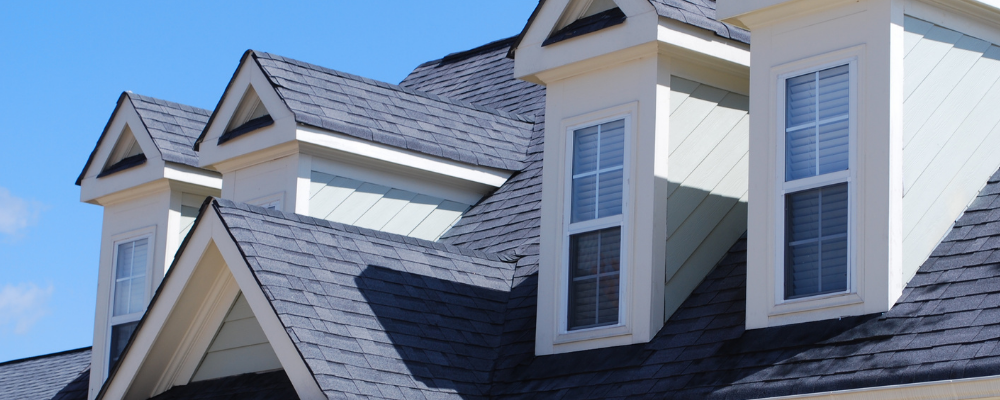Quick Summary
The FHA 90-Day Flip Rule says that if someone fixes up and sells a house, they have to own it for more than 90 days before someone can use an FHA loan to buy it. In simple terms, the person selling the fixed-up home must wait for at least 90 days before a buyer using an FHA loan can purchase it. This rule is in place to prevent quick flips that might not reflect the true value of the property.
Table of Contents
Being in the real estate game means that there are various rules that you should be aware of, particularly as a buyer. For those who are buying flipped houses with an FHA loan, the FHA (Federal Housing Administration) 90-day flipping rule is something to be aware of. So, what is the FHA 90-day flip rule, and what does it mean for buyers?

What is the FHA 90-day flip rule?
FHA 90-day flip rule
Anyone who plans on buying a flipped house using an FHA loan will need to abide by certain rules and one of these is the 90-day flip rule. The rule states that in order sell a home to an FHA financed buyer, a house flipper must own the home for at least 90 days before executing the sale.
Bear in mind that the FHA and HUD definition of a flipped house is “the purchase and subsequent resale of a property in a short time.” To determine the timeframe, the FHA will take account into the date that the deed was recorded, and then the date that the buyer and seller sign the new sales contract for the house. If the time between these two dates is less than 90 days the FHA will not approve the loan, so it’s best practice to wait 91 days before buyers sign the contract.
Keep in mind that if you’re buying a flipped house between 91 and 180 days there are a separate set of rules you must follow as well.
House flipping
House flipping is a widely used investment strategy where a distressed property is bought and then renovated and sold for more to make a profit. For savvy house flippers, this can be a profitable strategy because they will know the right type of property to buy, and the best renovations to do for the money.
FHA loans
FHA loans are backed by the government and they’re generally easier to get approved for than traditional loans thanks to the less stringent lending criteria. People who have a lower credit score and don’t qualify for traditional loans can therefore apply for an FHA loan to be able to buy a house.
FHA 90-Day Flip Rule Example
Let’s assume that a house flipper purchases a home on the 1st of April.
Even if the renovations are executed swiftly, the house flipper would only be able to sell the house 90 days after the 1st of April, which works out to the 30th of June.
- Purchase Date: 01 April
- Minimum Days of Ownership: 90 Days
- Soonest Possible Sale Date: 30 June
To work this out in your head, you can just add 3 months to the original purchase date to determine the soonest possible sale date.
If you want to be more specific, you can use a calculator that allows you to add 90 days to the original date, to workout the exact date that a recently purchased house is eligible to be sold to an FHA financed buyer.
How do you get around the 90-day flip rule?
There are, however, some exceptions to the FHA 90-day flip rule and they are as follows:
- A builder who has built a new house, or who is selling to a borrower with FHA-insured financing.
- If the seller inherited the property.
- If the property is a resale by the HUD or its REO (real estate owned) program.
- Properties that are being sold by local or state government agencies.
- Properties that are being bought by companies for relocating an employee.
- Properties that are being sold in Presidentially Declared Major Disaster Areas (PDMDA). These will need an exception notice from the HUD.
- Properties being sold by non-profit organizations that are pre-approved to purchase single-family homes with resale restrictions.

Does the FHA Flip Rule apply to businesses or is it limited to personal residences?
FHA loans are intended for people who are going to be living in the home as their primary residence.
If you’re wondering whether you can run a business from a home that you have purchased using an FHA loan the answer is yes, however you will need to abide by the rules around this. FHA loans are generally intended for buyers who are going to use the house as their primary residence. Therefore, the flip rule will apply to this.
For homes that have an area dedicated to business use, an appraiser will need to evaluate the house based on its square footage, and the rule is that no more than 25% of the square footage of the house can be used for business or non-residential purposes. So, the majority will need to remain residential.
How soon can you flip a house, legally?
The timeline on how soon you can flip a house depends largely on how it has been funded.
Cash: For those using cash to fund their house flip, there are no legal restrictions on when you can flip the house, provided that the buyer’s lender has no restrictions.
FHA loans: If you’re using an FHA loan to fund your flip, you’ll need to live in the home for at least 1 year as your primary residence before you can sell it again.
Conventional loans: If you’re using a traditional loan, you may be subject to the same restrictions that the FHA loans require, as more conventional loans are following suit with these rules. It’s best to check this with your lender to make sure.

Does Freddie Mac have a flipping rule?
Freddie Mac defines a property flip as “a transaction in which a property is purchased and quickly resold for a significant profit”. For people who have loans through Freddie Mac, any property flip that is a legitimate transaction will be accepted. Legitimate property flip transactions include:
- The sale of a distressed property that was bought at below market value and then gained value due to the difference in the market’s reaction to the distressed sale.
- The sale of a property that increased in value and therefore price, as a direct result of the verified renovations that were done.
- Properties that were inherited and are now being sold.
- Properties being sold by a Government Sponsored Enterprise, or a state or federally chartered financial institution.
- Properties that were inherited from a divorce or other legal proceedings and are now being sold.
- The sale of a property by an employer or relocation agency.
When it comes to flipping rules for Freddie Mac and Fannie Mae, the following has been stated, “The lender is responsible for ensuring that the subject property provides adequate collateral for the mortgage. Fannie Mae requires that the lender obtain a signed and complete appraisal report that accurately reflects the market value, condition, and marketability of the property.”
To make sure that investors are compliant with any rules that may come up, here are a few tips:
- Keep the Deed of Trust or Warranty Deed so that you can verify when the owner was put on the title for the property.
- Make sure that you have documentation of the investor purchasing the home if it wasn’t listed on the MLS.
- Take “before” and “after” pictures of the house once it has been bought and then after the renovation.
- Keep a list of the renovations made to the property, along with the receipts and copies for the appraiser.

Overview of the house flipping timeline
The process of flipping a house can take different lengths of time, depending on how many repairs and renovations need to be done. As a general rule of thumb, the house flipping process can take:
- 6-9 Months – Highly experienced house flippers
- 9-18 Months – Reasonably experienced house flippers
- 18-24 Months – Inexperienced house flippers
The process timeline can be outline as follows:
- Purchasing the house – 1 month
- Renovating the house – 3 to 6 months
- Marketing the house – 1 or 2 months
- Selling the house – 2 to 3 months
This adds up to a 6-to-12-month timeline in total for house flips to take place.
Final Thoughts: Does the 90-day flip rule apply to you?
If you’re planning to buy a house with an FHA loan, it’s important to remember the FHA 90-day flip rule as this can change your plans. However, if you aren’t interested in abiding by the 90-day flip rule you can try another avenue for financing. So, the 90-day rule applies to anyone buying a flipped house with an FHA loan and needs to be navigated in accordance with FHA rules.

